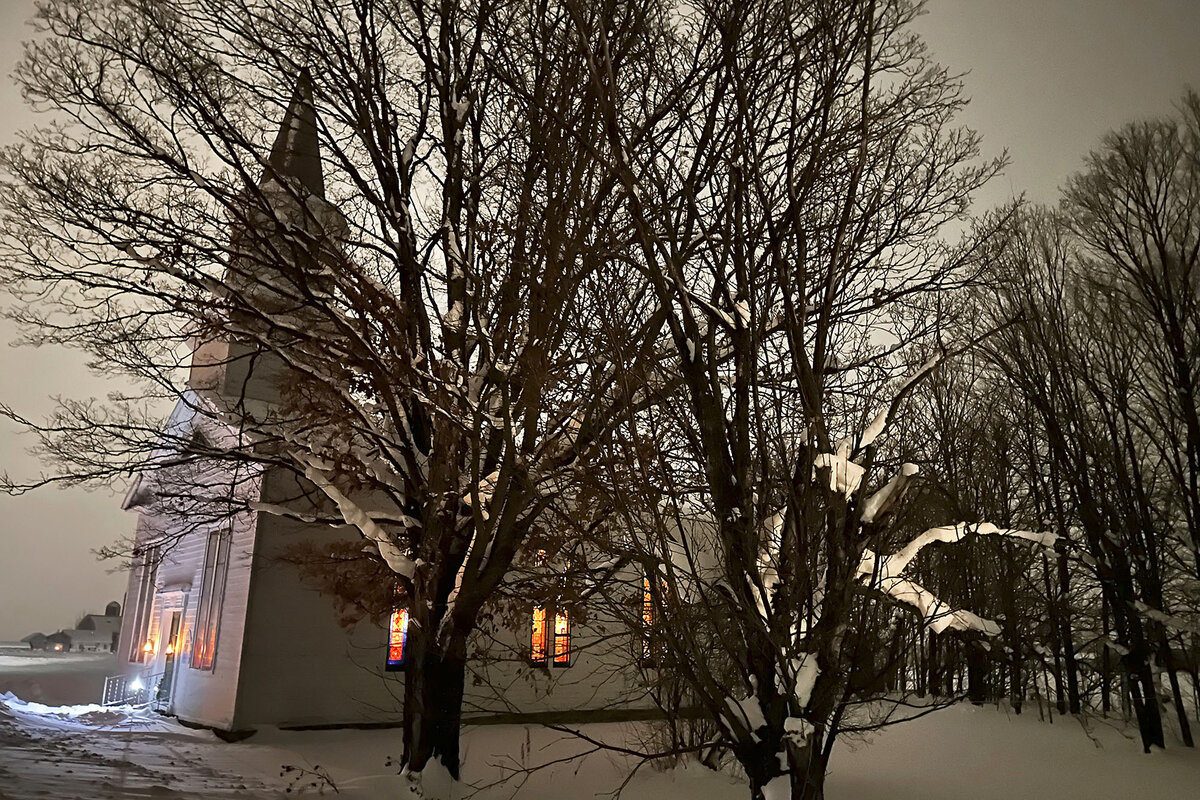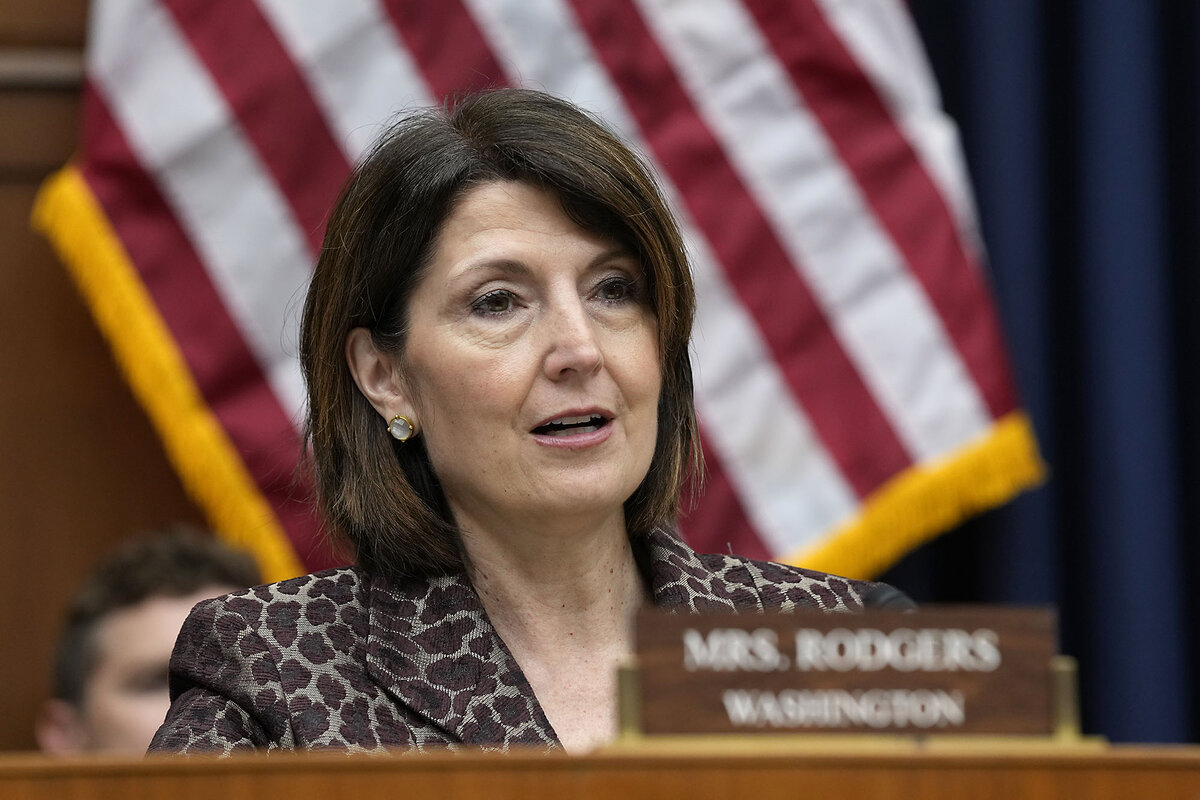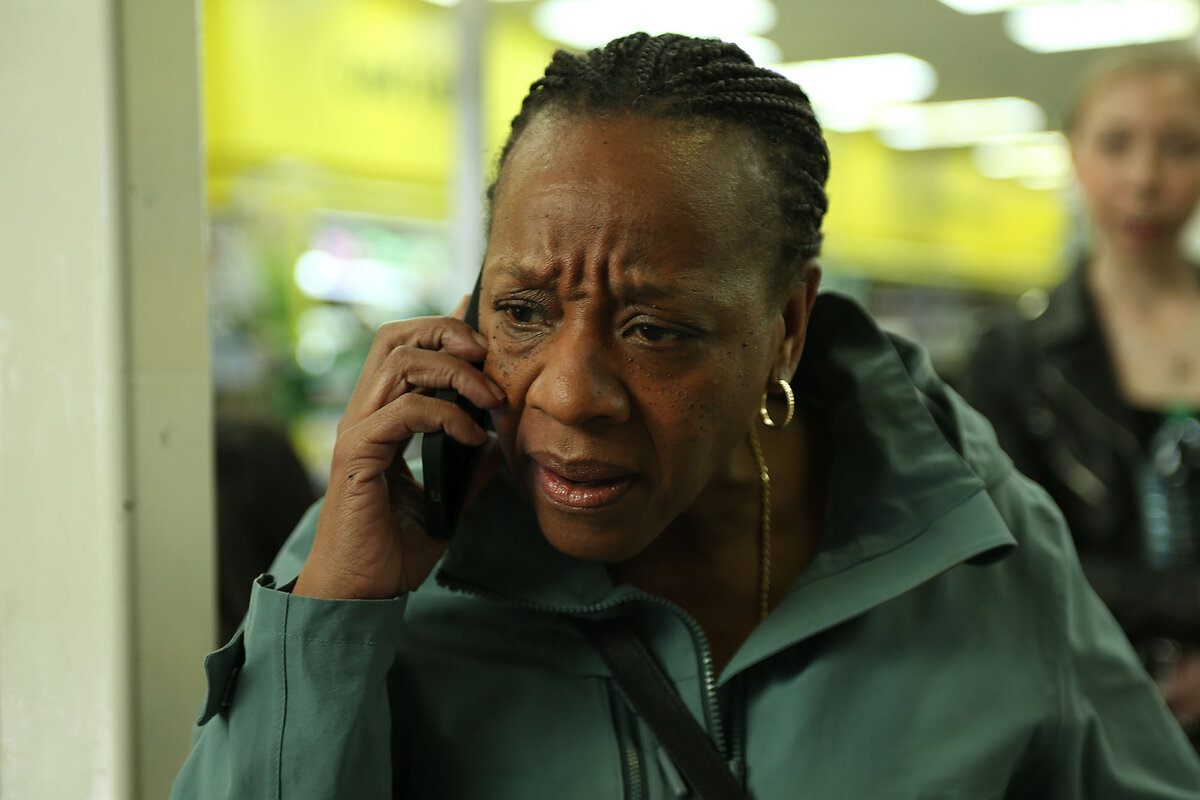• Interest rate cut: The Federal Reserve cuts its key interest rate by a quarter point, its third cut this year. It expects to reduce rates more slowly next year than previously envisioned, largely because of still-elevated inflation.
• TikTok case: The Supreme Court will hear arguments in January over the constitutionality of the federal law that could ban TikTok in the United States if its Chinese parent company doesn’t sell.
• Gaetz ethics report: The House Ethics Committee voted in secret earlier this month to release the long-awaited ethics report into former Rep. Matt Gaetz, according to a person familiar with the vote.
• Israel-Hamas ceasefire talks: A Palestinian official says mediators had narrowed gaps on most of the clauses in an agreement, but Israel introduced conditions that Hamas rejected.
• Iran pauses hijab law: Iranian authorities have paused a new, stricter law on women’s mandatory headscarf, or hijab, an official says.

Why is Christian Science in our name?
Our name is about honesty. The Monitor is owned by The Christian Science Church, and we’ve always been transparent about that.
The Church publishes the Monitor because it sees good journalism as vital to progress in the world. Since 1908, we’ve aimed “to injure no man, but to bless all mankind,” as our founder, Mary Baker Eddy, put it.
Here, you’ll find award-winning journalism not driven by commercial influences – a news organization that takes seriously its mission to uplift the world by seeking solutions and finding reasons for credible hope.
Explore values journalism About usMonitor Daily Podcast
- Follow us:
- Apple Podcasts
- Spotify
- RSS Feed
- Download
 Mark Sappenfield
Mark Sappenfield
I’m excited about Sophie Hills’ story in today’s issue. One reason is that it is fascinating – a look at the growth and evolution of “cultural Christianity,” and what that says about the United States and American religion today.
But just as exciting: It is Sophie’s first story in her new role as our faith and religion writer. She’ll focus on the intersection of religion and politics, culture, and ideas. And today’s article is a great start.
Already a subscriber? Log in
Help fund Monitor journalism for $11/ month
Monitor journalism changes lives because we open that too-small box that most people think they live in. We believe news can and should expand a sense of identity and possibility beyond narrow conventional expectations.
Our work isn't possible without your support.
News briefs
Today’s stories
And why we wrote them
( 6 min. read )
For years Turkey and Qatar backed what had been written off as the losing side in Syria’s civil war. With the Assad regime’s fall, and as Iran’s influence wanes, they are geopolitical winners. The Mideast’s axis of power is shifting, but it still runs through Syria.
( 6 min. read )
Some famous atheists have now adopted the term “cultural Christian” to describe themselves. What does it mean, and how is that playing out in an increasingly secular America?
Q&A
( 7 min. read )
Religiosity among the U.S. public is falling, yet Congress remains steeped in spiritual traditions. One longtime congresswoman speaks about how her faith informed her two national decades in politics.
Film
( 4 min. read )
“Hard Truths” is one of our critic’s picks for 10 best films of the year. Its director “knows that how we present ourselves to others does not always express who we really are,” he writes. “This gift, this humanism, is particularly pertinent to his fine new film.”
( 4 min. read )
Over a century ago at a historical moment similar to today’s, a Ukrainian choirmaster composed a piece of music that became an iconic Christmas carol. Using an old photograph, our writer sought out its birthplace in the besieged city of Pokrovsk.
The Monitor's View
( 2 min. read )
In the days since their liberation from a dictatorship Dec. 8, Syrians have been in a cheering mood. At the Umayyad Mosque in Damascus Dec. 13, they cheered the armed Islamist group that felled the Assad regime. In many cities, groups of people cheered for themselves with the chant “Hold your head up high, you’re a free Syrian.”
Yet perhaps the most heartfelt cheer came during a Dec. 11 parade atop firetrucks and ambulances. People in the capital gave a hero’s welcome to a grassroots rescue organization widely seen as the country’s most selfless, trusted, and impartial group: the Syrian Civil Defense, otherwise known as The White Helmets.
This band of some 3,000 unarmed and local volunteers, who wear white headgear, has saved more than 129,000 people during 13 years of civil war. They have rushed to bombed-out buildings to search for survivors – whether they be children, terrorists, or soldiers of the regime. After they served as first responders, they would then clear rubble, rebuild homes, and restore communities.
Even though some 10% of them have been killed, the volunteers hold fast to their motto (a verse in the Quran): “Whoever saves one life, it is as if they have saved all of humanity.”
If Syria becomes a unified and democratic country someday, the example set by The White Helmets may be one reason. Its leader, Raed Al Saleh, says the group’s neutrality and independence have been an important shield.
“We existed before all these armed groups and we continue to exist based on the power of the people,” he told Berkeley News in October.
Now The White Helmets wants to help Syrians “shake off the dust of war,” he said in a video on the social platform X. That effort includes their help in freeing political prisoners, clearing land mines, and preserving documents of the regime’s abuses. “The Syria of peace and civilization will return to you,” said Mr. Saleh.
The country still has many civil society groups that have survived the regime. “Syrians are not to the right or to the left – they are in the middle, they are just normal people,” White Helmets co-founder Abdulrahman Almawwas told Voice of America. “So we hope that the next government ... will lead us to a new Syria that all Syrians dream of.”
That dream was heard in the public cheers for The White Helmets, whose willingness to save all people has laid a foundation for a country too long torn apart by war over religion, ethnicity, and geopolitics.
A Christian Science Perspective
Each weekday, the Monitor includes one clearly labeled religious article offering spiritual insight on contemporary issues, including the news. The publication – in its various forms – is produced for anyone who cares about the progress of the human endeavor around the world and seeks news reported with compassion, intelligence, and an essentially constructive lens. For many, that caring has religious roots. For many, it does not. The Monitor has always embraced both audiences. The Monitor is owned by a church – The First Church of Christ, Scientist, in Boston – whose founder was concerned with both the state of the world and the quality of available news.
( 3 min. read )
As we lean on God for our direction, we discover our spiritual purpose, a clear path forward, and deeper satisfaction.
Viewfinder

A look ahead
Thank you for joining us today. Please come back tomorrow for Ned Temko’s Patterns column. He suggests that the fall of Syrian President Bashar al-Assad could be a windfall for the region and for the West. But that will require a few key players – including the United States – to control the instinct to meddle.








